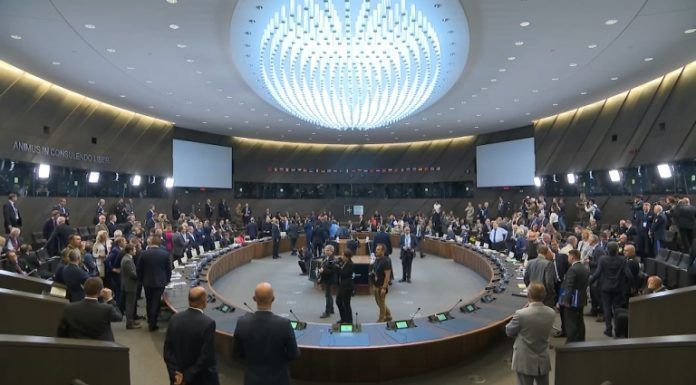BRUSSELS, June 27 (Reuters) – Acting U.S. Defense Secretary Mark Esper told NATO allies on Thursday that Washington did not want to go to war with Iran but also could not tolerate any further incidents, according to allied diplomats present.
Speaking to NATO defence ministers in a closed-door session, Esper said the United States held Iran responsible for attacks on two oil tankers in the Gulf of Oman but did not want the situation to escalate.
“His first words were: we don’t want to go to war with Iran,” one diplomat said. “Esper also made clear that this is about the limit (of what the United States will tolerate from Iran), that nothing more should happen now,” a second diplomat said.
NATO Secretary-General Jens Stoltenberg told a news conference after the meeting: “One important message is that the United States has so clearly stated that they don’t want a war. They actually said very clearly that they are ready to talk with Iran without a precondition.”
A week after U.S. President Donald Trump called off air strikes on Iran minutes before impact, European defence ministers led by France sought to use their first formal NATO meeting with Esper to cool the confrontation between Washington and Tehran, diplomats said.
Some five NATO countries spoke after Esper in the NATO meeting. French Defence Minister Florence Parly told Esper not to involve the NATO alliance in any military mission in the Gulf. Together with Germany and other European allies, France also made a plea to uphold the 2015 nuclear accord with Iran.
Turkey told Esper that “dialogue was better than sanctions” with Iran, and several other defence ministers including Germany’s said they would do everything possible to avoid an escalation.
“The French were very clear and very comprehensive: Yes, we have seen what happened, they said. But they also signalled that it was up to both sides to deescalate,” the diplomat said.
Esper did not present any new intelligence to the room. However, NATO countries now have shared intelligence showing it is highly likely the tanker attacks were carried out by Iran, or militia linked to Tehran, diplomats said.
(Reporting by Robin Emmott and Sabine Siebold; ; editing by John Stonestreet)


